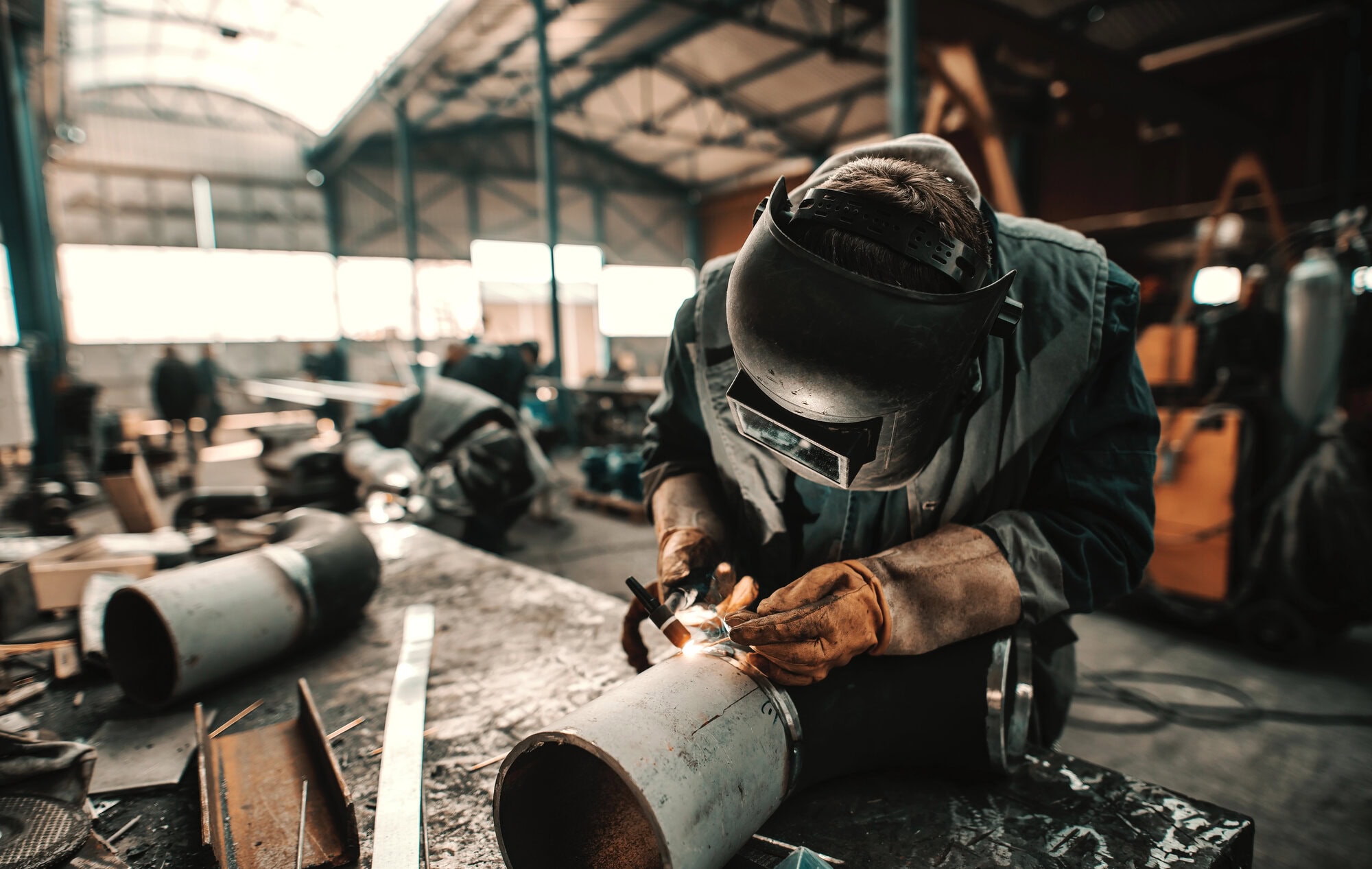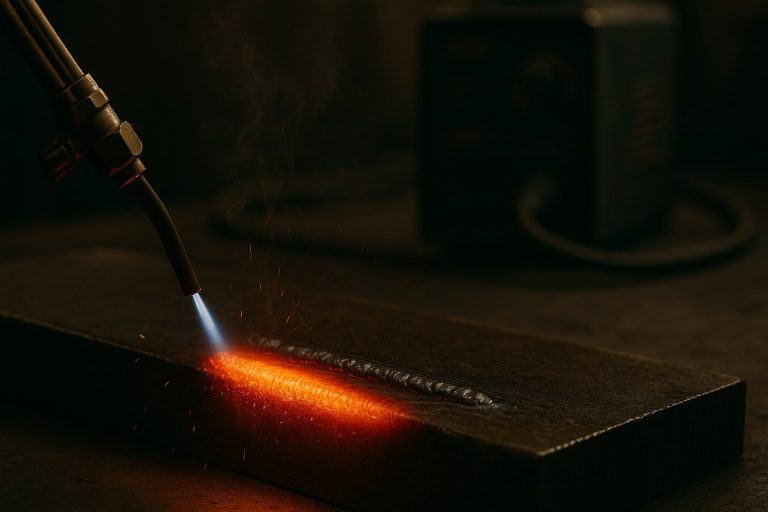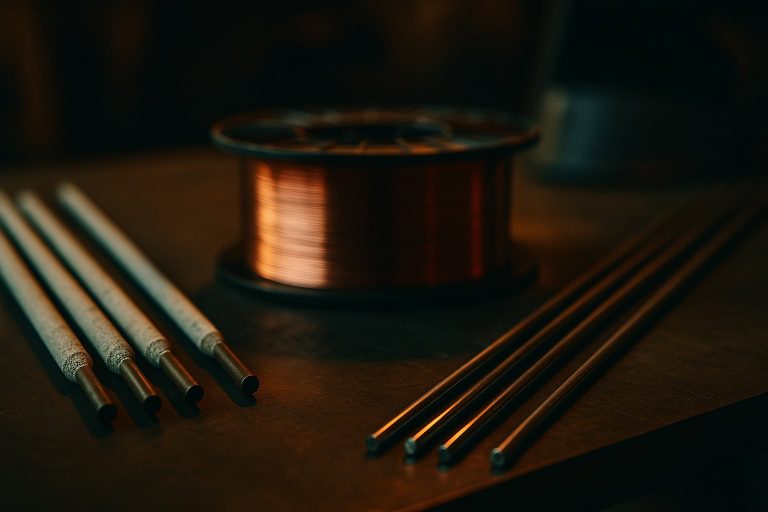10 Types of Jobs You Can Get as a Welder
August 17, 2020

Wondering if a career as a welder is a good option for you? Not sure what kinds of different jobs are available for skilled welding professionals? In this guide from Vern Lewis Welding Supply, we’ll take a look at a few of the different types of welding jobs that are available for those who carry welding certifications, or who are interested in becoming certified welders.
Welding Is Essential For Modern Industrial Fabrication
Welding is much more than just joining two pieces of metal together – it encompasses a wide variety of metal joinery methods to join together an enormous variety of metals. Welding is an essential part of almost every industry – from agriculture to the automotive, defense, manufacturing, construction, and natural gas and oil industries, to name just a few.
That’s why there are so many different types of welding jobs available. Each type of job may require different certifications and have different job requirements – for example, an oil rig welder will need to live on an oil rig for at least part of the year, while a manufacturing welder will go to an industrial plant in the same place every day. Let’s discuss a few of the most common types of welding jobs now.
1. Construction Welders
As the name suggests, construction welders are essential for building modern buildings – particularly commercial and industrial structures. From building bridges to skyscrapers, to welding pipes and HVAC ducts, there is a lot of variety in the job of a construction welder, and it’s one of the most important types of welding jobs.
2. Manufacturing Welders
Manufacturing welders work with metal to build new metal components or repair damaged components for a wide variety of industries such as the automotive, oil and gas, agricultural, and mining industries.
3. Structural Steel Welders (Ironworkers)
Also known as ironworkers, structural steel welders are responsible for creating and assembling structural steel frameworks, which are used to create both small and large buildings. This job can be dangerous, particularly when working on taller buildings, and requires proper attention to safety, as well as years of welding experience.
4. Sheet Metal Welders
Sheet metal workers specialize in working with sheet metal, which is often used to create cars and other vehicles like planes and boats, but is also used in the construction of buildings – such as in roofing, and installing air conditioning, heating, and boiler systems.
5. Industrial Maintenance / Shutdown Welders
This type of welder specializes in welding damaged industrial equipment, which can be done as part of routine maintenance, or as an emergency service when a major issue has caused the industrial plant to shut down entirely. They often must travel and remain at a job site for several days or weeks at a time.
6. Rig Welders
Rig welders can work on on-shore or off-shore oil and gas rigs, and may work to build new oil rigs and structures, or to maintain and repair existing structures. They usually must be available 24/7, so typically live on-site for long periods of time, followed by extensive time off.
7. Pipefitters
Pipefitters specialize in working with piping in the oil and gas, water, and electric utility industries. Unlike a plumber, a pipefitter specializes in welding and pipe joinery, and often help design and implement piping solutions for each individual client.
8. Shipyard Welders
Shipyard welders work in commercial or military shipyards, constructing and assembling a wide variety of ships including pleasure craft, cargo ships, tugboats, utility vessels, and more. Shipyard welders are also often required for refitting boats that need maintenance, and for inspection repairs done to ocean-going vessels.
9. Military Welders
Military welders work for every branch of the U.S. Armed Forces, and are often involved in the repair and upkeep of military vehicles and assets. This can be done at a military facility domestically, or at an Army base abroad or in a conflict zone. Naturally, military welders must go through basic training and other training before they can join the Armed Forces.
10. Underwater Welders
Underwater welders have the most difficult and dangerous occupation of all welders, often working in deep-sea conditions with extremely high water pressure, repairing oil drilling rigs, pipelines, ships, dams, and more. Because of the difficulty and high skill level required for this job, underwater welders typically receive very high hourly rates and salaries.
Find A Welding Job That’s Right For You!
As you can see from the list above there are a lot of different types of welding jobs. Many welders work in different fields throughout their careers, beginning with a position like a construction or industrial welder, and then obtaining different certifications and expertise to move to more advanced, complex jobs. No matter your preferences, you’re sure to be able to find a welding job that’s right for you – and have a fulfilling career that offers generous compensation and job security.
Join Our Newsletter
Sign up for our newsletter to receive specials offers, product updates, and more!




